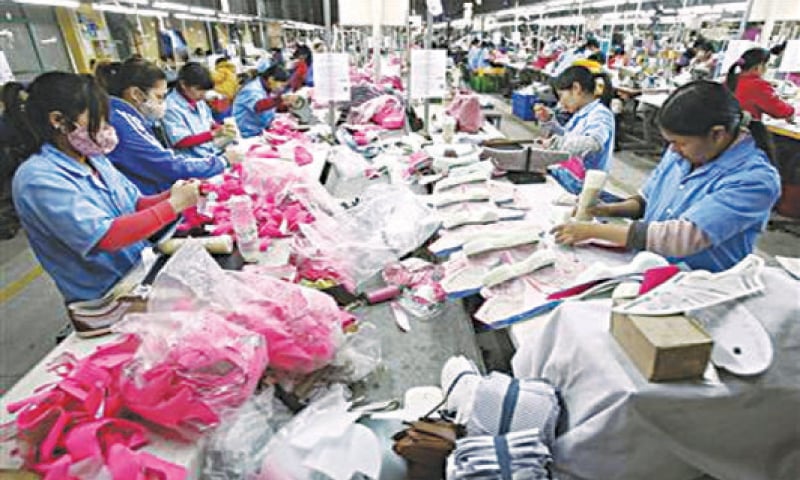SEOUL: North Korea, which suffers from poverty and isolation partly due to international sanctions imposed against the country for its nuclear and missile tests, has proclaimed a shift in national focus from nuclear weapons development to economic development.
“North Korea has done a lot of case studies on economic development plans that brought rapid growth to other countries. Vietnam is one of them. Its biggest concern is how to open its doors with Kim’s regime remaining intact. In other words, how to control its people while allowing them to set up private businesses,” Kim Young-hui, a North Korean defector and senior research fellow at the state-run Korea Development Bank, told The Korea Herald.
Pyongyang’s willingness to borrow economic development ideas from Hanoi is no secret. During the inter-Korean summit in April last year, Chairman Kim reportedly expressed interest in emulating the reform model to South Korean President Moon Jae-in.
North Korean Foreign Minister Ri Yong-ho visited Hanoi at the end of November 2018 to study the Doi Moi Policy, an economic reform policy Vietnam adopted in 1986 after realising its socialist model was about to collapse. The inflation rate had skyrocketed to 700 per cent due to US-led trade embargoes as well as poor access to reconstruction aid after prolonged wars with Cambodia and the United States.
The United States is Vietnam’s third-largest trading partner. Its FDI in Vietnam stood at $2 billion in 2017
With the Doi Moi Policy in place, Vietnam attracted an influx of multinational companies and foreign investment, and it has seen economic growth of 6pc to 7pc per year over the past half a decade. Before 1988, there were no private enterprises operating in Vietnam.
Global consulting firm Fitch Solutions said in a recent report that Vietnam offers North Korea “the most realistic path” for the massive and successful transformation of a communist one-party state with hostile relations towards the United States into “a politically stable, rapidly growing economy with good relations with most of its neighbours.”
Key to Vietnam’s successful overhaul was the normalization of relations with the United States in 1995 after 20 years of severed ties, as well as a trade agreement between the two countries in 2001, which led to a significant pickup in exports to the United States and foreign direct investment to Vietnam.
“Ultimately, North Korea will pursue closer relations with the United States in order to attract international financial aid,” Kim at the KDB said.
The United States has been sending messages to the North Korean leader, indicating he could replicate the Doi Moi success by improving relations with the United States.
“Vietnam is a close friend and partner of the United States ... the history of our two nations reflects the possibilities for peace and prosperity. We move past conflict and division towards the thriving partnership that we enjoy today,” US State Department deputy spokesperson Robert Palladino said on Thursday.
The United States is currently Vietnam’s third-largest trading partner, and US foreign direct investment in Vietnam stood at $2 billion in 2017, according to the Office of the US Trade Representative.
Large-scale foreign investment coupled with technological adoption is a key element for Kim Jong-un’s blueprint for the country’s future, the KDB researcher said.
“I agree with some experts’ suggestion that the combination of Vietnam and Estonia model would be a good fit for the North, as what Chairman Kim wants is the ‘fourth industrial revolution’ to make a giant leap forward,” she said.
Estonia adopted a digital approach for its fast-track reforms to modernise the economy after gaining independence from the Soviet Union in 1991. The country is a world leader in technology with high broadband speeds and the most start-ups per capita. It became the first country to allow online voting in a general election in 2017.
Dongguk University professor Koh Yu-hwan, however, was sceptical of Pyongyang’s readiness to accept the presence of multinational companies in the country. For example, the Vietnamese unit of Samsung Electronics accounts for some 20pc of the Southeast Asian country’s gross domestic production.
“Almost every global company is now operating in Vietnam or China. Is North Korea ready for this? It lacks the confidence to embrace the tenets of capitalism while maintaining the current dictatorship,” he said.
Fitch also raised similar concerns. The dynastic and centralised nature of North Korea regime implies that the country is more ideologically rigid than Vietnam, it noted.
“Vietnam had and maintains a quasi-collective leadership, which allows for greater debate over policy and thus more flexibility to implement reform,” it said. —The Korea Herald/ANN
Published in Dawn, The Business and Finance Weekly, February 18th, 2019












































